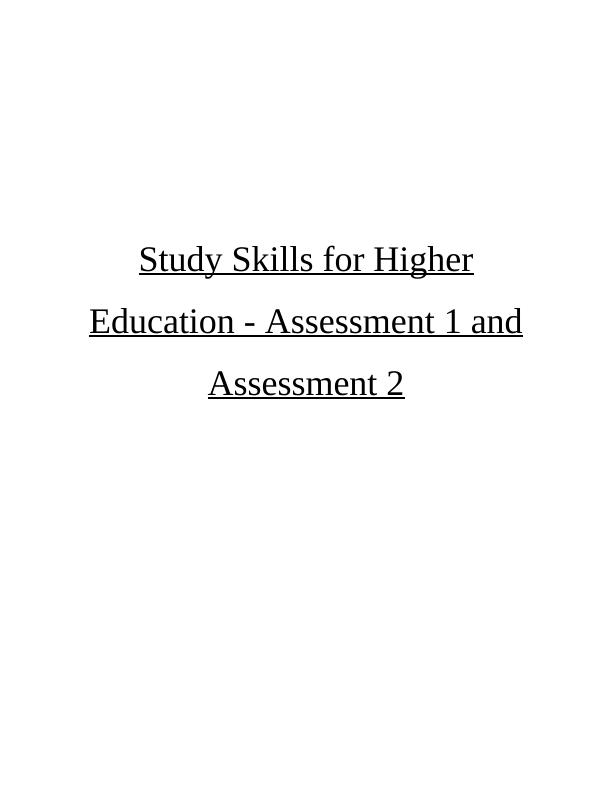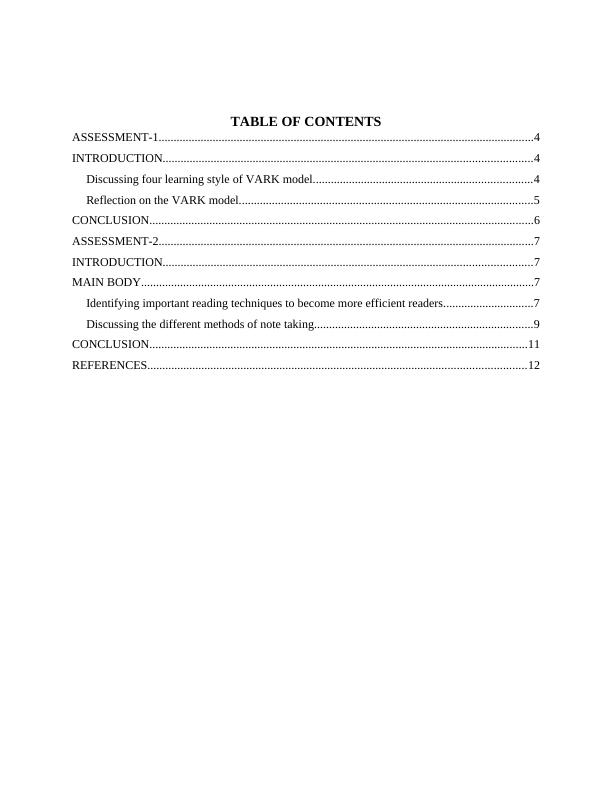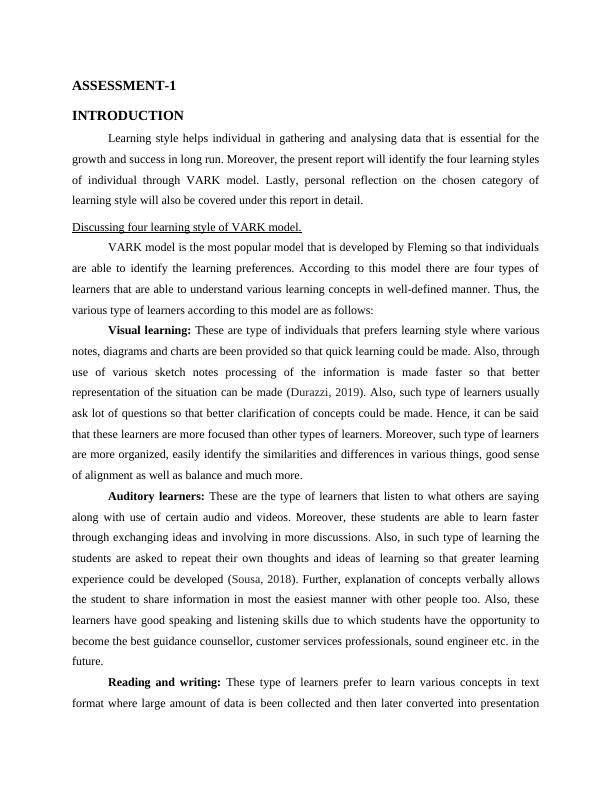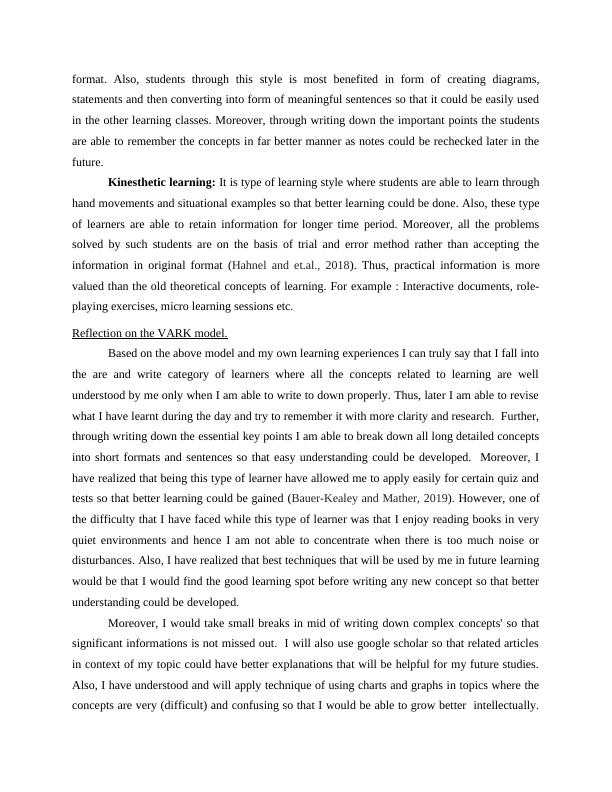Study Skills for Higher Education - Assessment 1 and Assessment 2
11 Pages4033 Words80 Views
Added on 2023-06-15
About This Document
This report discusses the VARK model and identifies the four learning styles. It also presents personal reflection on the chosen category of learning style. The report further focuses on important reading techniques and different methods of note-taking. It analyses the importance of note-taking and how it helps in maintaining focus in class. The report concludes by discussing the four methods of note-taking.
Study Skills for Higher Education - Assessment 1 and Assessment 2
Added on 2023-06-15
ShareRelated Documents
End of preview
Want to access all the pages? Upload your documents or become a member.
Study Skills for Higher Education: Reading and Note Taking Techniques
|14
|4265
|57
Study Skills for Higher Education Assignment 2022
|7
|1572
|23
VARK Model: Exploring Four Learning Styles and Criticisms
|8
|2167
|258
VARK Model of Learning: Explained with Four Learning Styles and Criticisms
|8
|2007
|177
Learning Styles: An Overview of VARK Model and Personal Experience
|6
|1234
|355
VARK Model: Discussion of Learning Styles and Personal Experience
|8
|1303
|71




